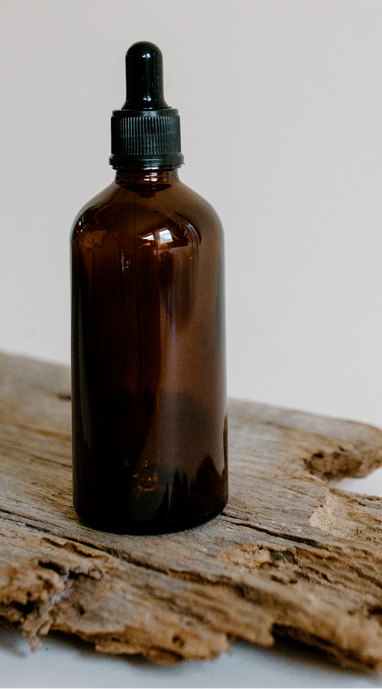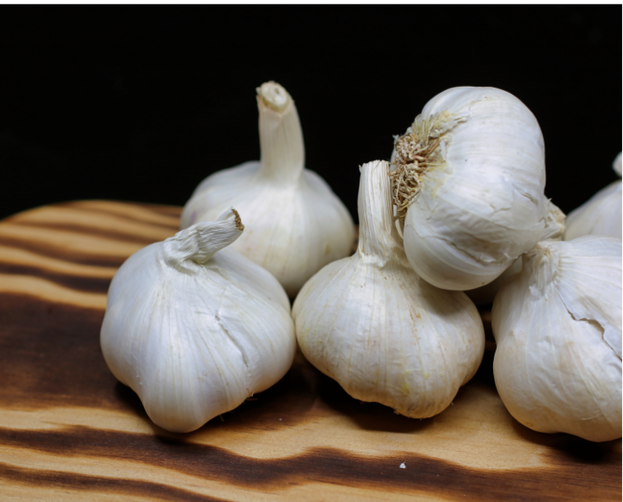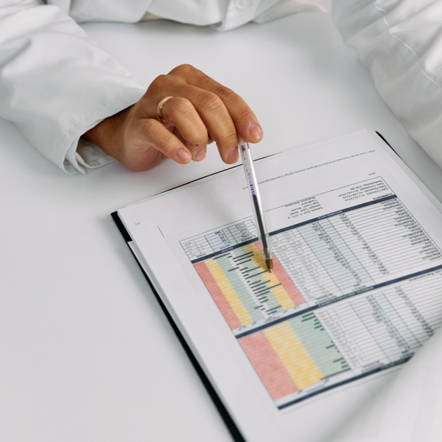Parasitic Infections: Another Potential Gut Health DisruptorWhen addressing gut health, we often think of overgrowth in the gut caused by bacteria (such as SIBO or H.pylori infections) or yeast (such as candida), but parasitic infections in the GI tract can also be to blame for disruption in the gut. Examples of parasites found in the GI tract include: Giardia Cryptosporidium Blastocystis hominis Entamoeba histolytica (dysentery) Ascaris (roundworm) Pinworms Hookworms The term "parasites" or "worms" may conjure up images of underprivileged countries with lack of clean drinking water or farmers raising livestock; however, while these are certainly situations that are higher-risk for parasite infections, they can happen even in "modernized" nations and to those who don't spend a lot of time with animals. These can happen to anyone and can cause digestive symptoms as well as other significant symptoms throughout the body. Some common symptoms of parasite infections include:
Some of these symptoms are acute, such as diarrhea during an infection, while other symptoms can be more chronic, such as IBS, lasting for a longer period of time following an infection. It is worth noting that some of these symptoms can be cyclical, as in they can come and go over a period of several weeks the parasites move through their life cycle. Because it can be hard to pin down some of these symptoms, which can be attributed to many different infections and illnesses, testing properly to diagnose if they are due to parasites or not is extremely important. Some parasitic infections can not only cause the gut and other symptoms above, but some can cause long-term damage if left untreated, such as Entamoeba histolytica and Giardia, which can damage the liver and bile duct, respectively. This is why one of the reasons that testing and working with a practitioner are so important if you have any GI symptoms and especially if you feel you may have contracted parasites. Testing can be done using stool tests through your doctor or you can opt for an at-home stool testing kit (I use the GI Map) to see what infections, parasitic or otherwise, are present. This is the best way that your symptoms and infections can properly be diagnosed and treated, either with herbs or a combination of herbs and prescription treatment if necessary. How do we Get Parasites?Parasitic infections can be picked up in many different ways, both in rural and urban settings, in poor or wealthy communities, with different organisms appearing in different environments. Those typically affected with severe infections are those living in or traveling to areas with poor water quality and unsafe drinking water. However, some of these organisms can be acquired from foods (such as undercooked pork or fish), pets and farm animals, swimming in natural waters, animal or insect bites, and even walking barefoot. Apart from drinking or swimming in contaminated water, most of these activities or settings do not necessarily have to be avoided, and some even have health benefits--I would never recommend not walking barefoot or petting sweet pups!--but it is important to understand they are risk factors and possible ways to "pick up" a parasite, especially for those with weak immune systems or compromised gut health. It is worth noting that many people can carry around some "load" of certain, less harmful, parasites with no symptoms or health problems. Some can either fight them off on their own or find they are not affected by these microbes, and some population of certain parasites may be considered normal. However, many people affected by these organisms will have symptoms, some severe and some mild, and do need to seek treatment. Herbal Remedies for ParasitesSo what are some of best herbs that help support your body if you have a parasitic infection (acute or chronic)? Herbs that provide different medicinal compounds, including saponins, alkaloids, flavonoids, and tannins, have been used for centuries all over the world for their anti-parasite and anti-microbial activities. Many of these herbal remedies not only affect parasites, but also help control overgrowth of bacteria and yeasts, which often are concurrent with parasitic infections as, often, this overgrowth has a root cause. I typically like to address parasites before other types of overgrowth, though some herbs can be used for both. There are certainly more herbs that have anti-parasite action than what I have listed here, but these are some of the commonly used and more easily accessible traditional remedies to treat parasites, helping bring balance back to your gut. Herbs with Anti-Parasite Activity
I typically like to do a combination of herbs, as some parasites will be more affected by one herb over another. These herbs can be prepared in a tincture, tea or or capsules, but I have an affinity for tinctures myself. However, many of these herbs are not highly palatable, especially for a tea or culinary preparation, so capsules can be preferable for some. Tinctures with a combination of wormwood/black walnut/clove are easy to find, and this could be paired with an encapsulated supplement containing stronger-tasting herbs like berberine, garlic, and thyme oil or oregano oil. If herbs are too strong for you, consider homeopathy as an alternative as well, or incorporate foods that have been shown to have anti-parasite action, such as pumpkin seeds, raw honey, high fiber foods, and culinary preparations of anti-parasite herbs like garlic, onion, ginger, cinnamon, and turmeric rather than their stronger remedy preparations (such as capsule or tincture). The Root Cause of Gut InfectionsSince we can't avoid nature and anything potentially harmful at all times, whether concerning parasites and darn near all other aspects of health, is it important to understand the root cause of how we got to this point in the first place. If you experience chronic gut infections, parasitic, bacterial or fungal, these are often the result of an underlying imbalance that allowed these infections to take over in the first place. If the diet is of poor quality and the gut is not functioning properly--including low stomach acid, lack of beneficial microbes, poor immune function, and compromised gut integrity (leaky gut, lack of healthy mucous membrane)--parasites are more able and likely to become a problem as your body cannot fight them off. These health factors, paired with an overburdened body from our toxic load (personal products, agricultural chemicals, heavy metals, etc.) and stress, can make us more susceptible to gut infections, including parasites. I believe that getting infections of many types is normal at different points in our life and is part of our body's natural healing processes, but chronic infections like this that interfere so much with our health should be able to be fought off by a healthy immune system, robust gut microbiota and adequate stomach acid production, not allowed to take over by a healthy gut environment. This is why it is necessary to address these underlying health and lifestyle issues in conjunction with herbs when it comes to parasitic infections. If not, they will either not clear up or they will come back, because the environment of the gut is not able to protect against them. Digging Deeper: Other Gut Support to ConsiderAs I mentioned above, it is essential to consider address the root cause of overgrowth and support gut healing in addition to herbal remedies when approaching parasitic infections. Incorporating herbal remedies, either alone or complementing prescription therapies, are important and usually necessary, but we must look at healing the gut in addition to these treatments to repair and rebuild going forward. Other gut support to consider in conjunction with herbal anti-parasite remedies include:
Don't Go It Alone! Why to Work with a Provider on Gut HealthGut infections, parasitic and otherwise, can be very serious medical conditions and deserve the care and treatment you can find by working with the right providers.
If you have acute or chronic gut symptoms and have potentially been exposed to parasites, seek medical treatment find out what is causing your symptoms, especially to prevent medical complications. This helps takes the guesswork out of your treatment plan and gets you the right diagnosis--I cannot recommend against self-diagnosis enough! Testing, rather than guessing, when it comes to GI infections helps you know which microbes may be overgrown, (parasitic and otherwise), if beneficial microbes are lacking, and how to get right treatment, including if herbal/complementary treatment is enough or if you need medical attention and prescriptions in addition to diet and lifestyle modifications. Lastly, gut issues, especially those chronic, ongoing symptoms are stressful! By getting help from providers, you get not only help with a treatment plan, but also the personal coaching and support that is necessary when on a healing journey. If you want extra support with your gut healing path, visit my website to see if working together could be helpful for you, and sign up for a free 15-minute call to make your decision even easier! In good health, Laura
2 Comments
|
Brine & Broth
I am a gut health-focused nutritionist and online health coach based in Southwest Wisconsin. My recipes and philosophies center around traditional, nutrient-dense foods that support robust gut health. Archives
May 2022
Categories |







 RSS Feed
RSS Feed
